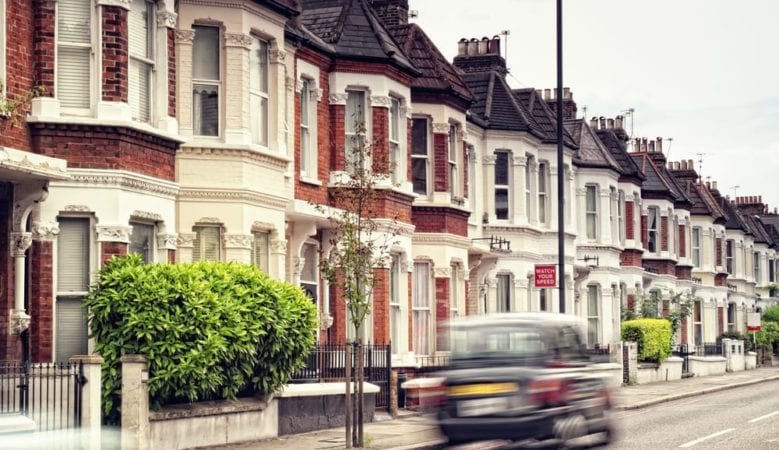New report blames housing crisis on high levels of immigration

Soaring demand for rented housing in the UK which is making it harder for young people to get a home of their own is due to high levels of immigration pushing up rents, it is claimed.
Immigration has been a major driver of the demand for privately rented properties across the country with a third of homes in the private rented sector now rented to people born abroad, up from around a fifth in 2000, according to research from think tank Migration Watch.
It says in a new report that this demand is forcing up rents and thus making it harder for young people to be able to afford a deposit and rent for a home. It adds that rents in England, for example, have increased by 23% in the last decade.
The research also shows that London is bearing the brunt of rising demand for rental properties, which has largely been driven by unprecedented levels of immigration.
An analysis of the Labour Force Survey shows that homes headed by those born abroad accounted for more than 80% of the total growth, 265,000 out of a total 328,000, of households in London’s private rented sector over the past decade.
Over the same period, London rents have been increased by 36%, considerably more than the 21% rise in average earnings between January 2008 and January 2017.
The report says that the fact that immigration is a major component driving the demand for homes is often ignored or downplayed by many commentators and politicians.
Meanwhile, the supply of new homes has failed to keep pace. House building across the UK has fallen short, averaging only 130,000 a year in the past 10 years. In contrast, the House of Lords Economic Affairs Committee said in a report published in July that at least 300,000 homes need to be built across the UK each year, the majority of them in England.
It points out that despite losing more people each year to other parts of the UK than any other region of the country, the rapid growth in the migrant population in London has put a huge strain on the city’s housing stock.
‘Rents have risen as demand has outpaced supply leaving many young people increasingly unable to buy their own home while developers, landlords and private investors have benefitted financially,’ it adds.
It also says that rising house prices have contributed to an increase in the number of young people being forced into the private rented sector, pointing out that the share of 25 to 34 year olds in England heading privately rented homes has nearly doubled from 24% to 46% over the past decade, while the proportion of owner-occupiers in the same age bracket fell from 57% to 38% during the same period.
For some young people the high cost of renting can mean spending longer living in house shares or with parents. Indeed, research by Shelter recently revealed that 59% of 18 to 44 year olds in Britain say they will be forced to put their lives on hold as a result of the housing crisis.
The report suggests that at current levels of net migration a new home would have to be built every five minutes, day and night, just to house new migrants and their families.
‘The Government is in denial about the massive impact of immigration on the housing market. While the older generation have been able to sit back and watch their properties shooting up in value, it is younger people who have mainly suffered the consequences with sky high rents and little prospect of owning their own home,’ said Lord Green of Deddington, chairman of Migration Watch UK.
‘This is frankly indefensible. The time has come for firm measures to address the demand for housing as well as its supply, and to acknowledge and deal with one of the main drivers of demand for housing. Otherwise, we will not only fail to meet demand but our young people will continue to bear the brunt of the housing crisis,’ he added.




